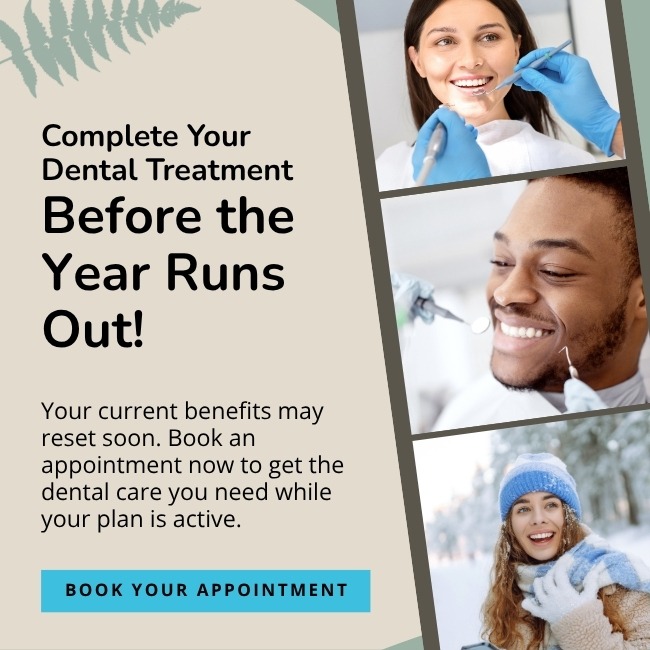Brushing and flossing are both crucial for maintaining good oral health, but does the order in which you do them matter? Dental professionals generally recommend flossing before brushing. Flossing first removes plaque, bacteria, and food debris from between the teeth, allowing the fluoride in toothpaste to reach and protect those areas more effectively.
In addition to flossing and brushing, maintaining a well-rounded oral care routine is essential. Learn more about our dental exams & cleanings and family dentistry to protect your smile.
Why Flossing Before Brushing Works Best
Flossing first loosens plaque and trapped food particles, making it easier for the toothbrush to remove them. The fluoride in toothpaste then has a better chance of strengthening and protecting your teeth.
Additional benefits of flossing before brushing include:
- Better plaque removal: Flossing first helps remove debris that your toothbrush might not reach.
- Fluoride effectiveness: Brushing after flossing allows the fluoride in toothpaste to better coat the teeth and prevent cavities.
- Fresher breath: Removing trapped food particles reduces bad breath caused by bacteria buildup.
However, if you find that flossing after brushing encourages you to do it more regularly, it is better to maintain a consistent habit rather than skipping flossing altogether.
Establishing a Healthy Oral Hygiene Routine
The most important aspect of oral care is consistency. A well-balanced routine should include:
- Brushing twice a day: Use fluoride toothpaste and a soft-bristled toothbrush.
- Flossing daily: Remove plaque and food debris from between the teeth.
- Rinsing with mouthwash: Antimicrobial or fluoride mouthwash can help maintain fresh breath and strengthen enamel.
- Regular dental checkups: Professional cleanings remove stubborn plaque and tartar.
Skipping any of these steps can increase the risk of gum disease, tooth decay, and bad breath.

How to Make Flossing a Habit for Kids
Teaching children to floss early can set them up for lifelong oral health. Here are some ways to make flossing fun and engaging for kids:
- Use kid-friendly flossers: Colourful floss picks or flavoured floss can make flossing more appealing.
- Make it a game: Create a fun challenge, such as a flossing chart with stickers for daily flossing.
- Floss together: Children often mimic their parents, so setting a good example helps reinforce the habit.
- Play music: A short song or timer can encourage kids to floss for the right amount of time.
- Use tech to your advantage: The Philips Sonicare For Kids toothbrush pairs with an interactive app that rewards good brushing habits—and helps reinforce a full oral care routine, including flossing. Ask us how you can pick one up right here at the clinic!
Encouraging positive flossing habits early can help children avoid cavities and gum disease in the future.
The Role of Flossing in Preventing Gum Disease
Gum disease, or periodontal disease, is one of the most common oral health issues. Research shows that nearly 70% of Canadians will experience gum disease at some point. Preventing and managing this condition is essential for maintaining long-term oral health.
When plaque accumulates along the gumline, it can lead to gum inflammation (gingivitis). If left untreated, it can progress to more severe gum disease, which may result in:
- Gum recession: The gums pull away from the teeth, exposing sensitive areas.
- Tooth loss: Advanced gum disease can lead to tooth mobility and loss.
- Bone damage: Severe cases can cause deterioration of the jawbone.
Flossing plays a key role in preventing gum disease by removing plaque and bacteria from areas that brushing alone cannot reach.
Choosing the Right Type of Floss
Selecting the right floss can improve your experience and make flossing more effective. Different types of floss include:
- Nylon floss: Available waxed or unwaxed, this type is widely used and effective for most people.
- PTFE floss: A shred-resistant option that slides easily between teeth.
- Dental tape: Wider and flatter than standard floss, ideal for people with larger gaps between teeth.
- Orthodontic floss, floss threaders, super floss: Options for those undergoing orthodontic treatment.
- Easy thread floss: Easy to use floss option if you have a bridge.
- Floss picks: Convenient for on-the-go flossing, though they may not reach all areas as effectively as traditional floss.
Finding the floss that works best for you can encourage daily use and improve your overall oral health.
Are Water Flossers a Good Alternative?
Water flossers can be a useful addition to an oral hygiene routine. They use a pulsating stream of water to remove plaque and food particles from between teeth and along the gumline.
Benefits of using a water flosser include:
- Reaching difficult areas: Water flossers can clean around braces, bridges, and implants more easily than traditional floss.
- Gentle on gums: The pulsating water can be a comfortable option for individuals with sensitive gums or dental work.
- Encouraging flossing habits: Some people find water flossers easier to use, making them more likely to floss consistently.
Water flossers are a great alternative for those who struggle with flossing.
The Importance of Professional Dental Cleanings
Even with diligent at-home care, professional cleanings are necessary to remove hardened plaque (tartar) that cannot be eliminated with brushing and flossing alone. Our dentists recommend scheduling a cleaning every six months to maintain optimal oral health.
During a professional cleaning, a dental hygienist will:
- Remove plaque and tartar buildup.
- Polish the teeth to remove surface stains.
- Check for signs of gum disease
Regular checkups also provide an opportunity to discuss any concerns and receive personalized oral care recommendations.
Prioritizing Oral Health with Daily Flossing
Flossing before brushing can maximize oral hygiene benefits, but the most important thing is to floss daily—regardless of which order you do it in. Establishing a strong oral hygiene routine, choosing the right floss, and incorporating professional dental care can help maintain healthy teeth and gums for years to come.If you have concerns about your oral health or are due for a dental checkup, schedule an appointment with Sundance Dental today. Our team is committed to providing comprehensive care to keep your smile healthy and bright.





